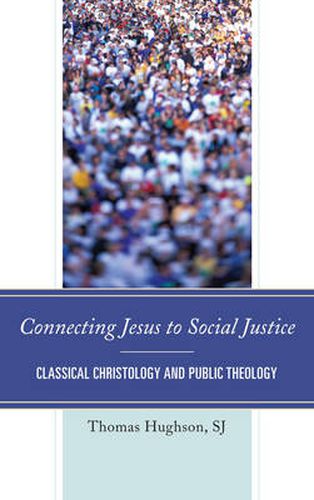Readings Newsletter
Become a Readings Member to make your shopping experience even easier.
Sign in or sign up for free!
You’re not far away from qualifying for FREE standard shipping within Australia
You’ve qualified for FREE standard shipping within Australia
The cart is loading…






Many Christians see the societal dimension of their faith as a matter of biblical and social ethics. Returning to classical Christology, Connecting Jesus to Social Justice explores messianic potential in the Council of Chalcedon on the divine identity of Christ.
Who Jesus is makes all the difference to Christian entrance into the public sphere on behalf of a just society. The Messiah’s divinity bears on social mission directed toward a just social order. Theological appropriation of Chalcedon overcomes a gap between the professing the Creed and interpreting social existence in light of a just social order. Connecting Jesus to Social Justice argues a doctrinally traditional, orthodox basis for Christian participation in the public sphere on behalf of social justice.
The book addresses a situation internal to churches in the U.S. from a Catholic perspective yet not without analogies in other churches and Christian movements. Applying traditional Christology to contemporary social mission solidifies an answer to adversarial queries on the appropriateness of a social agenda. Implications in the classical Christology also confirm churches and discipleship in commitment to social justice promoted through a subaltern counter-public and then by word and deed in the public sphere.
$9.00 standard shipping within Australia
FREE standard shipping within Australia for orders over $100.00
Express & International shipping calculated at checkout
Stock availability can be subject to change without notice. We recommend calling the shop or contacting our online team to check availability of low stock items. Please see our Shopping Online page for more details.
Many Christians see the societal dimension of their faith as a matter of biblical and social ethics. Returning to classical Christology, Connecting Jesus to Social Justice explores messianic potential in the Council of Chalcedon on the divine identity of Christ.
Who Jesus is makes all the difference to Christian entrance into the public sphere on behalf of a just society. The Messiah’s divinity bears on social mission directed toward a just social order. Theological appropriation of Chalcedon overcomes a gap between the professing the Creed and interpreting social existence in light of a just social order. Connecting Jesus to Social Justice argues a doctrinally traditional, orthodox basis for Christian participation in the public sphere on behalf of social justice.
The book addresses a situation internal to churches in the U.S. from a Catholic perspective yet not without analogies in other churches and Christian movements. Applying traditional Christology to contemporary social mission solidifies an answer to adversarial queries on the appropriateness of a social agenda. Implications in the classical Christology also confirm churches and discipleship in commitment to social justice promoted through a subaltern counter-public and then by word and deed in the public sphere.